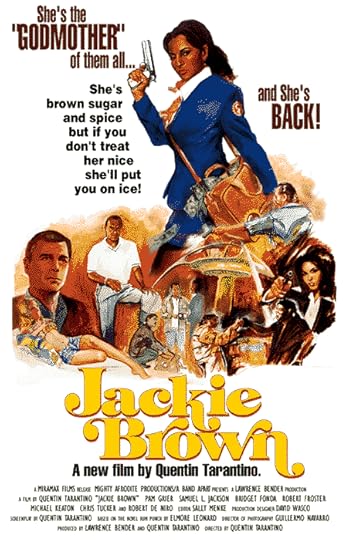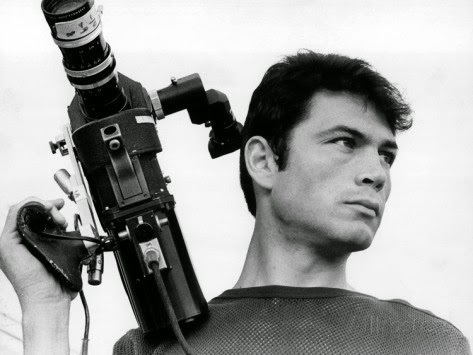The Many Faces of Robert Forster

Back in late December, when Christmas music was in the air, I breakfasted with Robert Forster at his favorite West Hollywood café. Oscar season was just heating up, and our chat turned to the possibility that showbiz veteran J.K. Simmons might score a Best Supporting Actor nomination for his role in Whiplash. We agreed that any honor coming to Simmons at this point in his career would be a tribute to the years he’s spent paying his dues within the industry. Said Forster, emphatically, “This guy deserves that, and he will get it. I’d say it’s a foregone conclusion that he’s gonna get his turn.”
Forster can easily put himself in Simmons’ shoes, because in 1998 he was nominated in the Best Supporting Actor category for Jackie Brown. The accolade from his peers, arriving “quite out of the blue,” filled him with “a feeling of warmth that was unexpected.” It had been a long time since his glory days as a handsome young rising star, and “I thought I was by then forgotten. . . . You know, to catch a little warmth near the end is a nice place to get it.”
Though Forster freely admits he’s not going to be People Magazine’s next Sexiest Man Alive, he’s hardly finished with his acting career. He may be over seventy, but interesting character parts keep coming his way. There was a time, however, when he seemed to be scraping bottom. Back in 1967, he had made his film debut under the direction of John Huston. For five years he played important dramatic roles in acclaimed Hollywood productions like The Stalking Moon and Medium Cool. He’s philosophical about his fall from grace: “There is a constant push of new people coming in who get the attention of an agent who goes to town and tries to promote them. There’s only so many jobs, and everybody is trying to find room for their clients in those few jobs.” Still, he had a family to support, and it was tough being relegated to the occasional TV episode and Roger Corman flick.
That’s why, after twenty-five years of struggling, he’s grateful to Quentin Tarantino for returning him to the limelight as good-hearted bail bondsman Max Cherry in Jackie Brown. (As he puts it, “I was dead, and this guy gave me life.”) He’s also grateful to Alexander Payne, who cast him in the small but meaty part of George Clooney’s father-in-law in The Descendants. Which, in turn, led to his memorable appearance in Breaking Bad. Not one to blow his own horn, he describes himself as “a very lucky guy.”
Certainly, his start as an actor was remarkably lucky. Accompanying a friend from acting class to see an agent, he ended up featured in a Broadway play. And suddenly John Huston was asking to meet with him for an important dramatic role in Reflections of a Golden Eye, starring Elizabeth Taylor and Marlon Brando. Forster admitted to Huston, “I never made a movie, I don’t know how they’re made, I don’t know what the tricks are, but if you hire me I’ll give you your money’s worth.” Next thing he knew, he was in Rome, riding naked on a big white horse.
(Forster does a capital imitation of the deep-voiced Huston explaining to him, just before the cameras rolled, the essence of screen acting. Suffice it to say: “He gave me the responsibility and the authority to deliver whatever is needed inside that frame.”)
Is there a typical Robert Forster part? “I always say, whatever comes next is a surprise. It’s always a surprise.”
 Publicity Shot for "Medium Cool" (1969)
Publicity Shot for "Medium Cool" (1969)
Published on February 20, 2015 09:14
No comments have been added yet.
Beverly in Movieland
I write twice weekly, covering topics relating to movies, moviemaking, and growing up Hollywood-adjacent. I believe that movies can change lives, and I'm always happy to hear from readers who'd like t
I write twice weekly, covering topics relating to movies, moviemaking, and growing up Hollywood-adjacent. I believe that movies can change lives, and I'm always happy to hear from readers who'd like to discuss that point.
...more
- Beverly Gray's profile
- 10 followers



